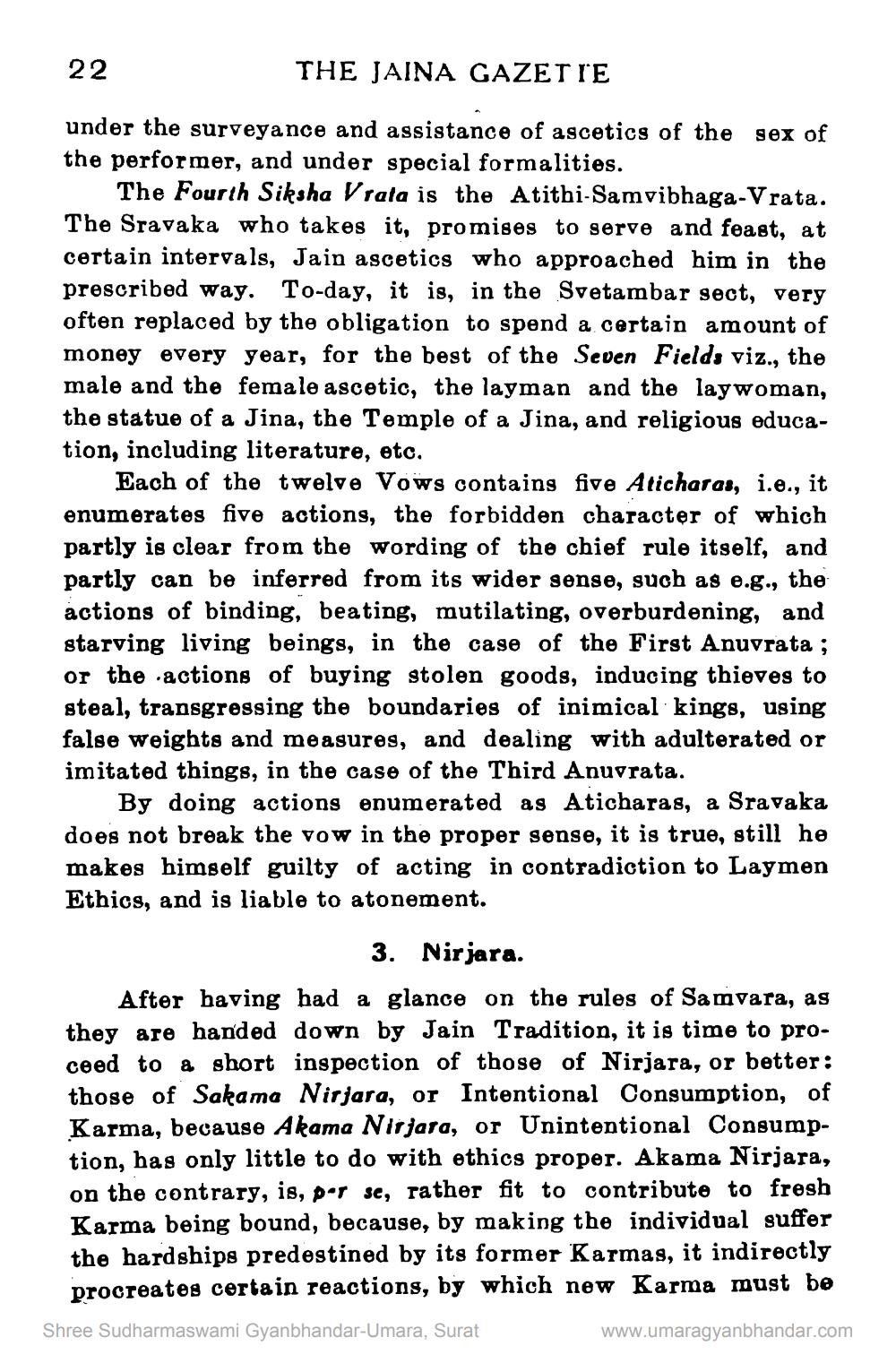________________
22
THE JAINA GAZETTE
under the surveyance and assistance of ascetics of the sex of the performer, and under special formalities.
The Fourth Siksha Vrata is the Atithi-Samvibhaga-Vrata. The Sravaka who takes it, promises to serve and feast, at certain intervals, Jain ascetics who approached him in the prescribed way. To-day, it is, in the Svetambar sect, very often replaced by the obligation to spend a certain amount of money every year, for the best of the Seven Fields viz., the male and the female ascetic, the layman and the laywoman, the statue of a Jina, the Temple of a Jina, and religious education, including literature, etc.
Each of the twelve Vows contains five Aticharos, i.e., it enumerates five actions, the forbidden character of which partly is clear from the wording of the chief rule itself, and partly can be inferred from its wider sense, such as e.g., the actions of binding, beating, mutilating, overburdening, and starving living beings, in the case of the First Anuvrata; or the actions of buying stolen goods, inducing thieves to steal, transgressing the boundaries of inimical kings, using false weights and measures, and dealing with adulterated or imitated things, in the case of the Third Anuvrata.
By doing actions enumerated as Aticharas, a Sravaka does not break the vow in the proper sense, it is true, still he makes himself guilty of acting in contradiction to Laymen Ethics, and is liable to atonement.
3. Nirjara. After having had a glance on the rules of Samvara, as they are handed down by Jain Tradition, it is time to proceed to a short inspection of those of Nirjara, or better: those of Sakama Nirjara, or Intentional Consumption, of Karma, because Akama Nirjara, or Unintentional Consumption, has only little to do with ethics proper. Akama Nirjara, on the contrary, is, por se, rather fit to contribute to fresh Karma being bound, because, by making the individual suffer the hardships predestined by its former Karmas, it indirectly procreates certain reactions, by which new Karma must be
Shree Sudharmaswami Gyanbhandar-Umara, Surat
www.umaragyanbhandar.com




